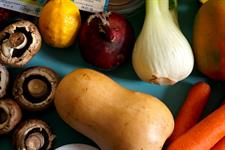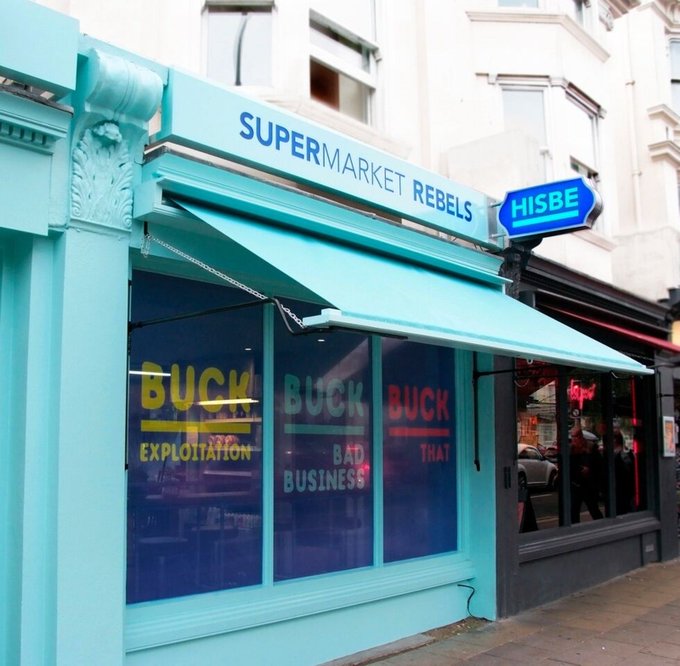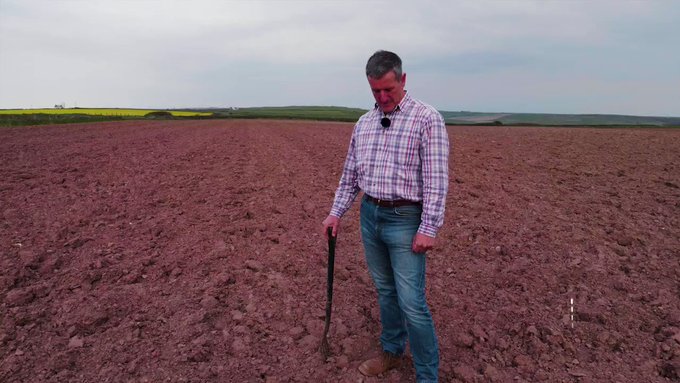Morrisons "goes back to traditional greengrocery" with loose produce rangeshttps://www.hortweek.com/morrisons-goes-back-traditional-greengrocery-loose-produce-ranges/fresh-produce/article/1585185 …
Crynodeb Newyddion Tyfu Cymru 11

3rd June – 9th June 2019
Yr wythnos hon cyhoeddwyd bod Fieldwork Robotics, busnes technegol newydd sy’n gysylltiedig â Phrifysgol Plymouth, wedi datblygu robot sy’n gallu pigo 25,000 o fafon y diwrnod – 10,000 yn fwy na phobl yn eu pigo. Ond beth arall sydd wedi bod yn digwydd yn y diwydiant garddwriaeth yr wythnos hon? Dyma grynodeb o rai o’n hoff eitemau newyddion o’r wythnos....
Archfarchnadoedd yn mynd i’r afael â deunydd pacio plastig.....
Yr wythnos hon, cyhoeddodd Sainsbury's y bydd cwsmeriaid sy’n prynu ffrwythau a llysiau rhydd naill ai’n gallu dod â’u bagiau eu hunain neu brynu bag y gellir ei ailddefnyddio o ddeunyddiau a ailgylchwyd. Mae hyn yn dilyn y newyddion bod Morrisons yn dychwelyd i ddulliau traddodiadol o werthu llysiau a ffrwythau yn rhydd.
Bydd Morrisons yn gwerthu cynnyrch rhydd mewn 60 o ganghennau yn ystod 2019, er y bydd yn parhau i gynnig y dewis o gynnyrch wedi’i becynnu i gwsmeriaid. Dywedodd yr archfarchnad y gallai’r newid hwn arbed tua thair tunnell o blastig yr wythnos, sy’n gyfwerth â 156 tunnell y flwyddyn.
Cafwyd hanes HISBE, yr archfarchnad herfeiddiol o Gaerefrog yn y newyddion yr wythnos hefyd, gyda’u hymgais i newid y diwydiant bwyd. Drwy gynnig cynnyrch lleol a thalu pris teg i gynhyrchwyr, mae’r archfarchnad yn awyddus i wneud gwahaniaeth.
Ond beth yw effaith dim deunydd pecynnu ar farchnata? Mae labeli yn parhau i chwarae rhan allweddol wrth farchnata planhigion addurniadol, ffrwythau a llysiau, gyda dyluniad creadigol a ffotograffiaeth dda yn parhau i fod yn rhan bwysig o’r cynnig. A oes ateb a all leihau deunydd pecynnu plastig, ond sy’n galluogi i frandiau fod yn wahanol i’w gilydd gyda’u labeli?
Fresh produce good for the mind?
In a recent study by UK behavioural economists it was discovered that eating extra portions of fruit and vegetables a day can boost people’s mental health. Co-author Dr Redzo Mujcic, assistant professor of behavioural science at the Warwick Business School, said: "This makes the case for an empirical link between fruit and vegetables and improved mental wellbeing more powerful.” He added: "We found being made unemployed had a very bad and significant effect on people’s mental health, greatly increasing the risk of depression and anxiety. But eating seven or eight portions of fruit and vegetables a day can reduce that by half."
It certainly seems that increasing our intake of fruit and veg not only has a positive impact on our health and bodies, but also our mental wellbeing.
Can produce grown in heated greenhouses be organic?
The question of whether products grown in heated greenhouses are worthy of the organic label is still under discussion in France, with a vote due in June. Critics from the organic sector have called heated organic greenhouse production “environmental nonsense incompatible with the organic label”, noting that 80% of greenhouses in France are heated by fossil fuels.
According to a study a tomato produced in France under a greenhouse produces eight times as much greenhouse gas as a tomato produced in France in season, and four times as much as a tomato imported from Spain, where tomatoes are grown in unheated greenhouses.
What are your thoughts? Does growing with organic principles in controlled environments quality the produce for organic status?
Healthy soil = healthy yields?
A healthy soil is a living ecosystem in which is home to diverse and complex ecosystems and store carbon. Soils supply nutrients and water, which are vital for plants, and are home to organisms that interact with plants, for better or worse.
Growing the same crop in the same place for many years in a row gradually depletes the soil of certain nutrients. With rotation, a crop that leaches the soil of one kind of nutrient is followed during the next growing season by a dissimilar crop that returns that nutrient to the soil or draws a different ratio of nutrients.
In the video below, NFU Cymru speaks to potato farmer Walter Simon who explains why healthy soil is so important for his business.
Swapping greens for pints…
A pub in Lincolnshire has launched a new concept called a Barter Board, that allows visitors to swap homegrown fruit and veg for pints or puddings. Guests can swap asparagus, cauliflower, Jersey Royal potatoes, broccoli, radishes, rhubarb, or spring greens for an item off the pub’s menu. There are two rules when it comes to the Barter Board – produce must be homegrown and grown in Lincolnshire, except Jersey Royal potatoes which can only be grown in Jersey. There is also a board in the dining area which lets guests know what they have used their produce for!
We will be back next week with our next weekly round-up, but in the meantime you can keep up to date with our latest news and events by following us on: Twitter, Facebook or Linkedin.







